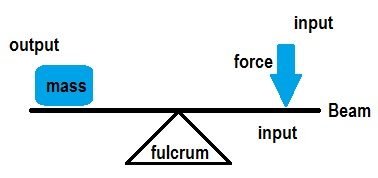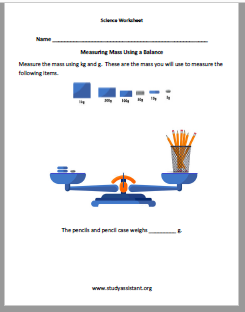Summary
Weight and mass are two different terms. Mass is a measurement of the amount of matter (stuff) something contains. It is measured by using a balance comparing one known matter to an unknown amount of matter.

Weight is different. Weight is a force. Weight is the measurement of the pull of gravity on an object towards the center.

So Mr. Noel’s weight can vary depending on gravity. Gravity gives him his weight. On earth, Mr. Noel weights 82 kg.

On the moon Mr, Noel’s weight is 13.53 kg. Weight changes depending on gravity. Mr. Noel is not physically smaller on the moon. His mass is the same. Thus, the mass of an object does not change with location. Mr. Noel could stand by the sea or upon a mountain, and his present mass will always stay the same.

Load and Effort
A lever is a simple machine. There are three types of lever. However, a first class lever has a fulcrum and a beam.

Three things you should know about simple machines.
- Simple machines do work in one motion. The force required would either be one that pushes down or lifts up weight.
- Simple machines have two sides: an input side and an output side.
- Simple machines produce a mechanical advantage. Mechanical advantage is the the ratio of the force produced by a machine to the force applied to it, used in assessing the performance of a machine.
Listen to the videos below.






